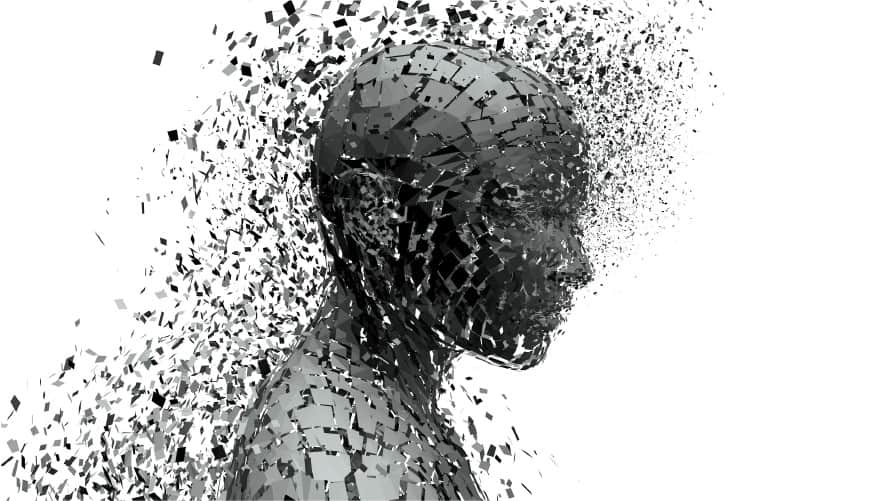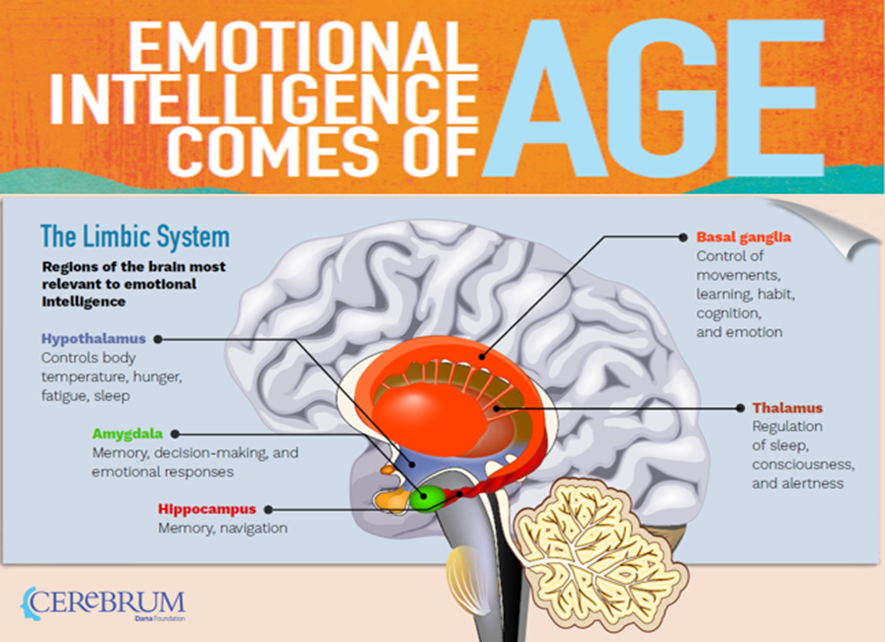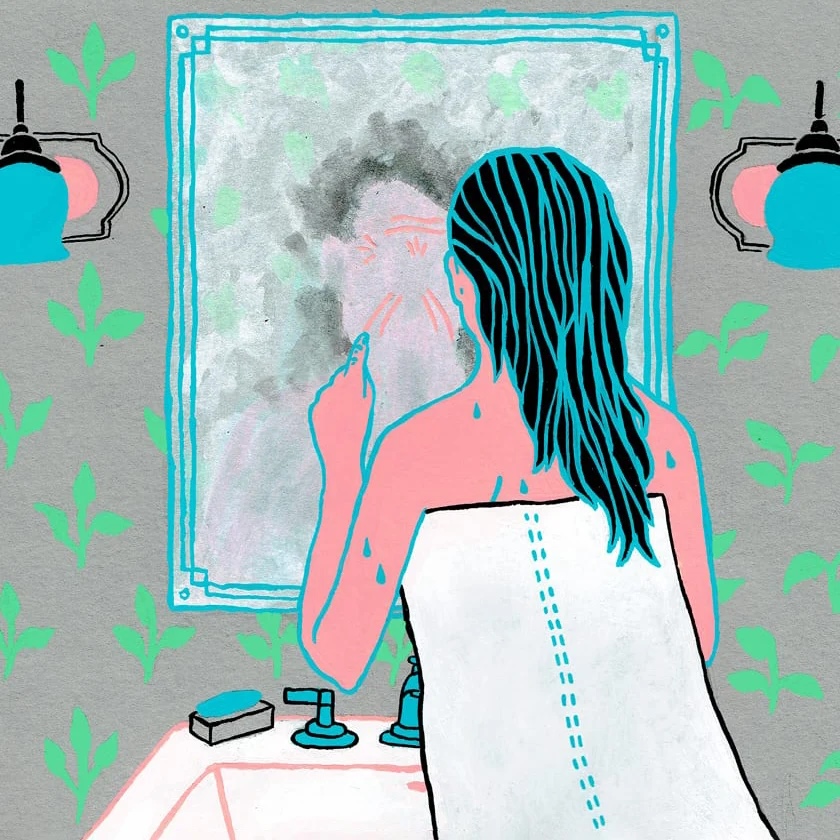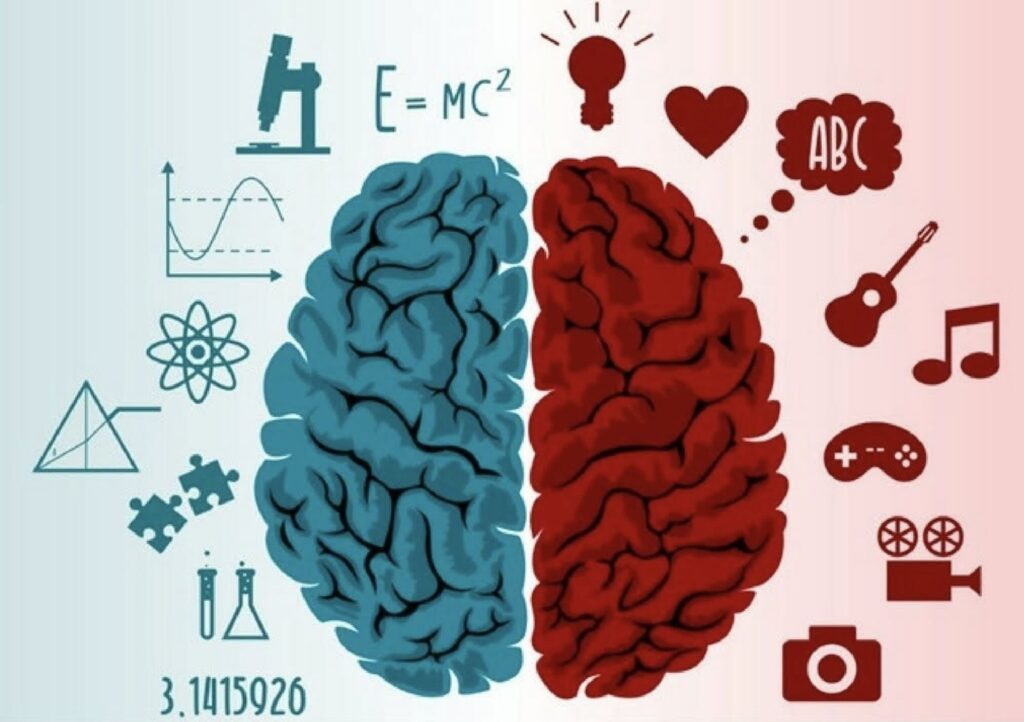
- May 18, 2024
- Aging, Cognition, Cognoscitivo, Emoción, Emotion, Ensayo, Envejecimiento, Essay, Psicología, Psychology
A bilingual article English-Spanish · Artículo bilingüe en inglés y español
The critical undertaking when reaching old age, if memory continues to govern our cognitive future, is to keep hope and romanticism intact, the desire to contribute and keep creating, to expand the feeling of love as far as the horizon can be perceived, to continue observing the world with the eyes of experience and the curiosity of a child for the mysteries of that space in which cosmos where one’s existence has taken place.
Lo importante al llegar a la vejez, si la memoria continúa rigiendo nuestro futuro cognitivo, es mantener intacta la esperanza y el romanticismo, el deseo de contribuir y seguir creando, expandir el sentimiento del amor hasta donde se percibe el horizonte, el seguir observando el mundo con los ojos de la experiencia y la curiosidad de un niño por los misterios de ese espacio en el cosmos donde ha transcurrido nuestra propia existencia.
Article in English
Quandary is also known as uncertainty, but the lack of certainty is only sometimes a lack of knowledge or security. In fact, in Ortega’s philosophy on change, it is suggested that we should have the wisdom to face and respond to processes of uncertainty, to quandary itself. Deep down, some states of uncertainty are fundamentally psychological, intangible within people, and not external to them. The world of emotions is also a world in which these forms of human complexity are debated.
The thought by Richelle E. Goodrich reinforces the differentiating concept between sensation, perception, and reality, between the world of certainty and uncertainty, where emotional dilemmas flow. “You may be the only person left who believes in you, but it’s enough. It takes just one star to pierce a universe of darkness. Never give up.” Feeling discouraged does not mean giving up. Feeling sad does not mean that joy does not exist. Feeling alone does not mean you are alone. Feeling anxious does not mean you are in danger. Feeling the loss of somebody close to you does not mean you have nothing. Feeling angry does not mean you lose control. Feeling sorry or ashamed does not mean you are to blame. What you think and feel are different from what it is.
The life cycle involves permanent learning with different stages that must be gone through and in which we acquire maturity. People must face and balance opposing forces, requiring synthesis in each of them. In adulthood, the challenge is finding the balance between one’s integrity and discouragement or, what is the same, between wisdom and uncertainty, or what is similar between the value of experience in predicting events and the uncertainty caused by external variables and intervening and unpredictable variables. The first is integrity, understood as fidelity to those universal principles that have allowed us to create a culture, recognize ourselves as travelers of the same planet, and be faithful to our immediate environment and the other great environment that encompasses all humanity.
Those who have learned to take care of themselves, to preserve their environment and that of other beings, will undoubtedly accept their triumphs and disappointments, inherent to the fact of living, with a gradual process of maturation throughout their life cycle. This fact is what we could understand by wisdom. As for discouragement, this would translate into despondency in the face of the uncertainty of what remains to be experienced, feelings of loneliness, desolation, and the questioning of everything that was taken for granted and immutable.
Senescence is a stage of introspection, of balance between the past, present, and future. This interiority means not only a review of the history of one’s own life but also the fact of reconsidering past behavior, admitting mistakes, and valuing our contribution to the well-being of our loved ones and the other beings who have accompanied our lives. We must recognize that on many occasions, wisdom appears with disappointments. Sigmund Freud maintained that in this emotional work of accepting what has gone and valuing what is preserved. In other words, we remember, repeat, and elaborate on the experiences that have given meaning to our intimate personal lives.
Upon turning 80, the philosopher Bertrand Russell told journalist Romney Wheler that he had lived 80 years of “changing beliefs and immobile hopes.” Those are the words of a philosopher who lived and suffered the terrible years of that century that engendered and endured the tragedy of two world wars. From our point of view, the critical thing when reaching old age, if memory continues to govern our cognitive future, is to keep hope and romanticism intact, the desire to contribute and keep creating, to expand the feeling of love as far as the horizon can be perceived, to continue observing the world with the eyes of experience and the curiosity of a child for the mysteries of that space in which cosmos where one’s existence has taken place.
Identity is always constructed within a social context that can be a facilitator in terms of personal enrichment experiences. Today’s society has progressively embraced a paradigm of active aging, reflecting in creating multiple programs to promote it. Most of them are framed in lifelong learning, without interruptions, physical activity, real or virtual travel, and volunteer actions in favor of society, with appreciable benefits for those who practice them. Indeed, the physical and cognitive aspects are fundamental for the healthy aging of people, but equally important is the care of emotions, an area that still needs to have its place within these society programs.

Emotional intelligence, in which parts of the brain are active from birth until the elderly, requires constant stimulation, mainly in the aging stages. We consider it transcendental, as evidenced by longitudinal studies, that those who have considered work as a vocational part of their existence, as an ethical commitment to the generations that come behind them, should not allow the years they have left to become years of mental and physical laziness. It is time to revitalize creative activity, volunteer for others, and productive work as fun, not as retiree fatigue.
As the years of maturity go through and the end of life’s journey approaches, if this process is emotionally healthy, people’s desires for solidarity and compassion for those who suffer emerge much more intensely. They experience generosity of feelings and an immense capacity to love genuinely without seeking anything in return. Nevertheless, they can also find out, with a mixture of pain, helplessness, and skepticism, the narcissistic cult of different actors in society, the fanaticism of ideas, the capacity for destruction of human beings, the vanity of power, and the tyrannical use that is made of it.
Often, the vestiges of a society without intergenerational feeling, a genuinely ecological feeling, park the repositories of the experience when they still have memory and condemn them to lose it in the prison of oblivion to which they are subjected. This fact is contrary to what happens in the American Indian tribes and some Eastern cultures, in which they have to feel proud and wise that they cultivate the value of the experience of their elders because, in that aspect, they are light years ahead of our arrogant societies of waste, of inconsequential leisure, of the here and now, and the cult of narcissism and extreme selfishness. For this reason, George Santayana’s famous and wasteful thought that “those who cannot remember the past are condemned to repeat it” comes to mind.
Our emotions and ability to process them are decisive issues when achieving healthy and active aging. Let us remember that aging is knowledge. In the words of the intellectual and author of the famous Diary, Henri-Frédéric Amiel, “Knowing how to grow old constitutes the masterpiece of wisdom and one of the most important parts of the great art of living.” Learning to live is also learning to die with dignity, joy, and hope.
Artículo en español
La incerteza también se conoce como incertidumbre, pero no siempre la falta de certidumbre es falta de conocimiento o de seguridad. De hecho, en la filosofía orteguiana sobre el cambio, se deja entrever que deberíamos tener la sabiduría para enfrentarnos y dar respuesta a los procesos de incertidumbre, a la propia incerteza. En el fondo, una parte de los estados de incertidumbre son fundamentalmente psicológicos, intangibles dentro de la personas y no externas a ellas. El mundo de las emociones es también un mundo en el que se debaten estas formas de complejidad humana.
El pensamiento de Richelle E. Goodrich refuerza el concepto diferenciador entre sensación, percepción y realidad, entre el mundo de la certeza y de la incertidumbre en donde fluyen los dilemas emocionales. «Puede que seas la única persona que cree en ti, pero es suficiente. Sólo se necesita una estrella para atravesar un universo de oscuridad. No rendirse nunca». Sentirse desanimado no significa renunciar. Sentirse triste no significa que la alegría no exista. Sentirse solo no significa que estés solo. Sentirse ansioso no significa que estés en peligro. Sentir pérdida no significa que no tengas nada. Sentirse enojado no significa que pierdas el control. Sentir pena o vergüenza no significa que tengas la culpa. Lo que sientes no es necesariamente lo que es.

El ciclo de la vida implica un aprendizaje permanente con diferentes etapas que es necesario atravesar y en las que vamos adquiriendo madurez. En cada una de ellas, las personas debemos afrontar y equilibrar fuerzas contrarias que requieren una síntesis. En la edad adulta el desafío es poder encontrar el equilibrio entre la propia integridad y el desaliento o lo que es lo mismo, entre la sabiduría y la incerteza, o lo que es similar, entre el valor de la experiencia en la predicción de los hechos y la incertidumbre que se ocasiona con las variables externas e intervinientes e impredecibles. La primera, la propia integridad, entendida como la fidelidad a aquellos principios universales que nos han permitido crear una cultura, reconocernos como viajeros de un mismo planeta, ser fieles a nuestro entorno cercano y al otro gran entorno que abarca a toda la humanidad.
Quien ha aprendido a cuidarse, a preservar su entorno y el de otros seres, sin duda aceptará sus triunfos y sus desilusiones, inherentes al hecho de vivir, con un gradual proceso de maduración y a lo largo de su ciclo de vida. Es lo que podríamos entender por sabiduría. En cuanto al desaliento, este se traduciría en un abatimiento ante la incertidumbre de lo que queda por vivir y los sentimientos de soledad, desolación y el propio cuestionamiento de todo lo que se daba por cierto e inmutable.

La senectud supone una etapa de introspección, de balance entre el pasado, el presente y el mismo futuro. Esta interioridad significa no solo una revisión de la historia de la propia vida, sino también el hecho de plantearse de nuevo la conducta pasada, de admitir los errores y valorar nuestra contribución al bienestar de los nuestros y los otros seres que han acompañado nuestras vidas. No debemos dejar pasar por alto de que en muchas ocasiones, la sabiduría aparece con las desilusiones. Sigmund Freud, sostenía que en este trabajo emocional de aceptar aquello que se ha marchado y valorar aquello que se ha conservado, recordamos, repetimos y elaboramos las experiencias que han dado sentido a nuestra vida personal.
El filósofo Bertrand Russell al cumplir 80 años expresó al periodista Romney Wheler que había vivido 80 años de «creencias cambiantes y esperanzas inmóviles». Esas son las palabras de un filósofo que vivió y sufrió los años terribles de ese siglo que engendró y soportó la tragedia de dos guerras mundiales. Desde nuestro punto de vista, lo importante al llegar a la vejez, si la memoria continúa rigiendo nuestro futuro, es mantener intacta la esperanza y el romanticismo, el deseo de contribuir y seguir creando, expandir el sentimiento del amor hasta donde se percibe el horizonte, el seguir observando el mundo con los ojos de la experiencia y la curiosidad de un niño por los misterios de ese espacio en el cosmos donde ha transcurrido nuestra propia existencia.
La identidad se construye siempre dentro de un contexto social que puede ser facilitador en cuanto a experiencias de enriquecimiento personal. La sociedad actual ha abrazado progresivamente un paradigma de envejecimiento activo que se refleja en la creación de múltiples programas para fomentarlo, la mayoría de ellos se enmarcan en el ámbito del aprendizaje a lo largo de la vida, sin intermitencias, la actividad física, los viajes reales o virtuales, las acciones de voluntariado en favor de la sociedad, con apreciables beneficios para quienes los practican. Efectivamente, los aspectos físico y cognitivo son fundamentales para el envejecimiento saludable de las personas, pero igual de importante es el cuidado de las emociones, un ámbito que parece no tener todavía un lugar propio dentro de estos programas sociales.

La inteligencia emocional, en la que partes del cerebro están activas desde el nacimiento hasta la vejez, requiere una estimulación constante, principalmente en las etapas de envejecimiento. Creemos que es transcendental, como así lo evidencian estudios longitudinales, que aquellos que han considerado el trabajo como parte vocacional de su existencia, como compromiso ético con las generaciones que vienen detrás, no deben permitir que los años que les quedan se conviertan en años de pereza mental y física. Es quizá el momento de revitalizar la actividad creativa, el voluntariado a favor de otros, el trabajo productivo como diversión y no como fatiga del jubilado.
A medida que pasan los años de madurez y se acercan al final de la jornada de la vida, si este proceso es emocionalmente sano, afloran con muchísima más intensidad en las personas, los deseos de solidaridad, de compasión por los que sufren. Experimentan generosidad de sentimientos, de una inmensa capacidad de amar genuinamente, sin buscar nada a cambio. Pero también pueden llegar a constatar, con mezcla de dolor, impotencia y escepticismo, el culto narcisista de diferentes actores de la sociedad, el fanatismo de las ideas, la capacidad de destrucción del ser humano, la vanidad del poder y el tiránico uso que de él se hace.
Muchas veces, los vestigios de una sociedad sin el sentimiento intergeneracional, sentimiento genuinamente ecológico, aparca a los depositarios de la experiencia, cuando todavía tienen memoria, y los condenan a perderla en la cárcel del olvido al que se les somete. Hecho contrario de lo que ocurre en las tribus indígenas americanas y muchas culturas orientales –de lo que tienen que sentirse orgullosas y sabias– que cultivan el valor de la experiencia de sus mayores, pues en ese aspecto nos llevan años luz a nuestras prepotentes sociedades del despilfarro del ocio intrascendente, del aquí y del ahora, y del culto al narcisismo y egoísmo a ultranza. Por eso, viene a colación ese famoso y dilapidario pensamiento de George Santayana de que «aquellos que no pueden recordar el pasado están condenados a repetirlo».
Nuestras emociones y nuestra capacidad para procesarlas son cuestiones decisivas a la hora de alcanzar un envejecimiento integralmente saludable y activo. No olvidemos que el envejecimiento es conocimiento, en palabras del intelectual y autor del célebre Diario íntimo, Henri-Frédéric Amiel, «Saber envejecer constituye la obra maestra de la sabiduría y una de las partes más importantes del gran arte de vivir». Aprender a vivir es también aprender a morir con dignidad, alegría y esperanza.
References · Referencias
Amiel Henri-Frédéric (2023). Fragments d’un journal intime (Éd.1922). Vanves: Hachette Livre.
Goodrich, Richelle E. (2015). Smile Anyway: Quotes, Verse, and Grumblings for Every Day of the Year. Amazon: Create Space, Kindle Direct Publishing.
Russell, Bertrand and Wheeler, Romney (1952). A Life of Disagreement. The Atlantic, August Issue.
Santayana, George (2011). The Life of Reason: Introduction and Reason in Common Sense. Cambridge, Mass: MIT Press.
_______________________
© 2024 Miguel Ángel Escotet. All rights reserved for both versions, English and Spanish. It can be reproduced citing the source and the author. Todos los derechos reservados para esta edición en inglés y español. Se puede reproducir citando la fuente y el autor.